April 15, 2025 | 22:37 GMT +7
April 15, 2025 | 22:37 GMT +7
Hotline: 0913.378.918
April 15, 2025 | 22:37 GMT +7
Hotline: 0913.378.918
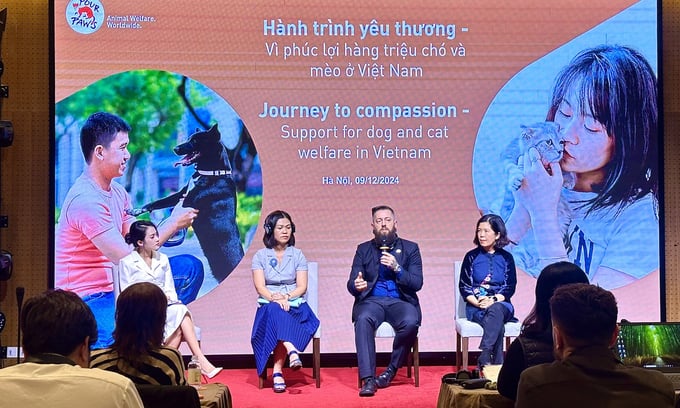
Ending the dog and cat meat trade should be done soon to minimize the risk of infectious diseases transmitted from animals to humans and enhance Vietnam's friendly tourism image. Photo: VGP.
Dr. Karan Kukreja, Head of Companion Animals Campaigns for Southeast Asia at Four Paws, emphasized this at the "Journey to Compassion - Support for Dog and Cat Welfare in Vietnam" held December 9 in Hanoi.
The event, which was also attended by representatives from the Ministry of Health, localities, international organizations, non-governmental organizations (NGOs), and tourism companies, aimed to honor Vietnam's progress in improving companion animal welfare as well as strengthen partnerships and cooperation between parties at both the national and international levels in committing to ending the dog and cat meat trade.
The conference highlighted the growing support from people and communities in Vietnam for ending the dog and cat meat trade. Since 2019, Four Paws has received more than 2.2 million signatures worldwide, including 250,000 signatures from Vietnamese people, calling for an end to trade in Vietnam and Southeast Asia.
This event also allowed international delegates to share their experiences banning the dog and cat meat trade. Lin Sileap, the Livestock and Animal Health Committee, Department of Agriculture, Forestry and Fisheries of Siem Reap Province, Cambodia, shared about the challenges and successes of the dog meat trade ban in Siem Reap in 2020.
Lola Webber, an independent expert on the dog and cat meat trade and an advisor to Humane Society International (HSI) in the campaign against the dog meat trade in Korea, provided delegates with insights into the context of the dog meat trade in Korea and the efforts and progress leading to a groundbreaking ban on the dog meat trade in Korea in January 2024.
Matt Backhouse, Four Paws Head of Stray Animal Care in Southeast Asia, said that ending the dog and cat meat trade requires the efforts of each province and city. Hoi An is a model to aim for. This work needs specific and clear instructions, creating a legal corridor for communities or localities to implement when there is no extended support from international organizations.
Also, at the workshop, tourism experts, animal health institutes, and local authorities discussed and shared opinions to assess the impact of the dog and cat meat trade in Vietnam - a tourist destination.
Vu Huong Giang, Operations Manager & Sustainability Coordinator of Easia Travel, said international tourists are increasingly interested in animal welfare and ethical tourism practices. Easia Travel has made great efforts to raise awareness among customers about the dog and cat meat trade and how to properly treat companion animals to ensure safety and provide friendly tourism experiences, such as food tours that do not involve dog and cat meat. Collaboration with organizations such as Four Paws and government agencies is essential to create change across the industry while positioning Vietnam as a leader in sustainable tourism practices.
Tran Thi Hong Trang, Hoi An Agricultural Technical Center, emphasized that Hoi An City becoming a dog and cat meat-free city has improved the city's tourism image and aligns with the country's sustainable tourism development goals. While negative perceptions about ending the dog and cat meat trade still exist, they could undermine Vietnam's efforts to attract international visitors.
Veterinarian Vuong Tuan Phong, Hanoi Gaia Pets Clinic & Resort, shared the idea of building a pet industry in Vietnam to make Vietnam a pet-friendly destination when more and more tourists want to bring their pets when traveling. Hoi An City (Quang Nam province) can be a model for this model. In addition, there is support for job conversion for those who used to trade in dog meat to contribute to building friendly and sustainable Vietnamese tourism.
The opinions, experiences, and sharing of delegates attending the workshop brought many opportunities and valuable information to contribute to building a Vietnam that is friendly to humans and animals, with no more dog and cat meat trade.
Four Paws is committed to continuing to cooperate with the Government and relevant parties to propose solutions to trafficking risks, aiming to end the dog and cat meat trade in Vietnam.
Four Paws has been working in Vietnam since 2019 to address the dog and cat meat trade risks. Every year, an estimated ten million dogs and cats are captured, transported, and slaughtered for their meat in Cambodia, Vietnam, and Indonesia. Most of these animals are stolen pets or communities, and stray animals are taken from the streets to supply the trade.
Translated by Huong Giang

(VAN) South Africa commits to working with Vietnam to conserve biodiversity, promote a just energy transition, manage marine areas, and develop sustainable aquaculture.

(VAN) Vietnam Agency of Sea and Islands has proposed that the MAE organize the Vietnam Sustainable Maritime Economy Development Forum in 2025.
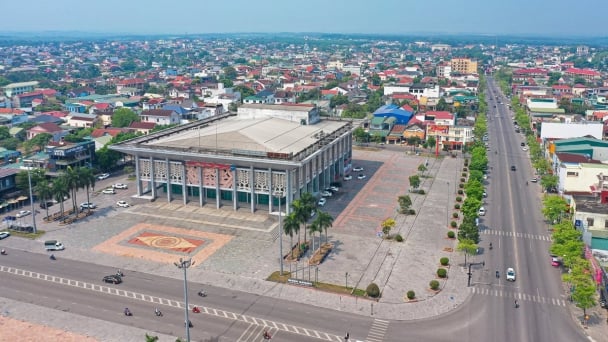
(VAN) Deputy Prime Minister Nguyen Hoa Binh has just signed a decision approving the Project to organize administrative units at all levels and build a two-tier local government structure.
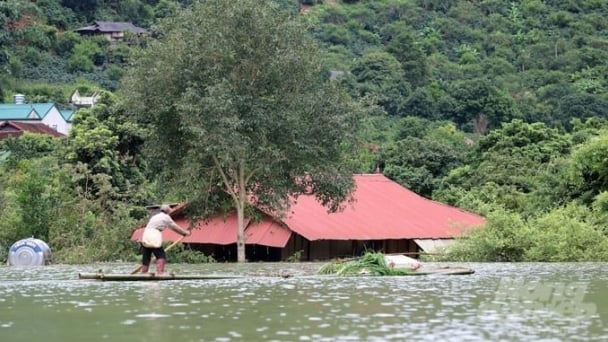
(VAN) This is an important goal that the UN-Habitat organization of the United Nations is implementing in Son La, aiming to respond to climate change and reduce disaster risks.
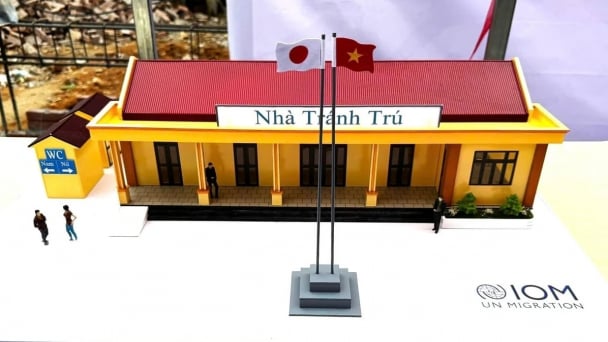
(VAN) In the context of increasingly complex climate change, the International Organization for Migration (IOM) is committed to supporting Vietnam in developing safe and sustainable migration models.
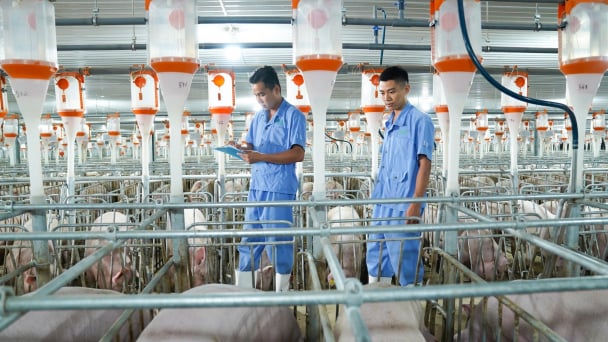
(VAN) In the second quarter, the whole sector plans to accelerate production and penetrate new, high-potential markets, including the Middle East, Africa, and Halal Islamic Countries.
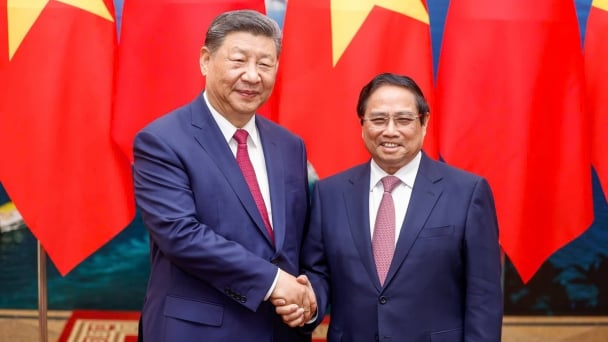
(VAN) On April 14, Prime Minister Pham Minh Chinh met with General Secretary and President of China Xi Jinping, who is on a two-day state visit to Vietnam from April 14 to 15.